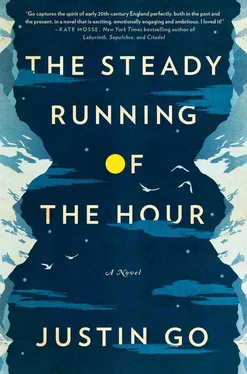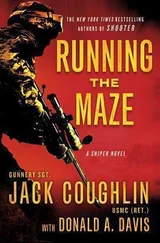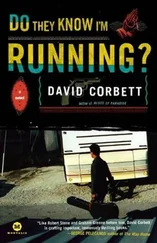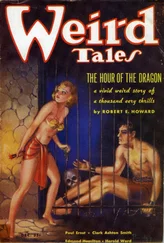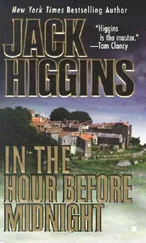The memories were all that remained. Her life now was an apartment of rented furniture, where even the pictures on the wall were unfamiliar, rented pictures, portraits of dead Junker families and landscapes of the Sächsische Schweiz, a place she had never visited. She had not even a suitcase of mementos to carry with her through the world. But all this was as she had wanted it. It was the life she had chosen.
She had always told herself it would be worse to stay in touch, to trivialize love into trifling acquaintance, where years passed and the letters became fewer and more superficial. Still there were moments of terrible doubt. She woke sometimes from dreams of perfect clarity, trysts with spectral lovers who promised that all histories had been smoothed away, all obstacles removed so that at last they might meet again for all time. These were dreams so perfect in the dreaming that they became nightmares upon waking, for in the morning, in her bedroom, she recognized at once the stark feebleness of her present life. She would be seized by the need to find this specter, to dash to the post office and send a telegram, to board any train or ship or airplane to meet him. She must find him.
Yet in the end she could never do this. There were reasons why they lived apart and the reasons had not dissolved with the years. Besides this, there was always the caprice of human affection: the other people who would come between them, or those who would come in the future if their attachment waned. She could write, at least, a few lines to say she had thought of him. But the only fitting reply to love was equal love; once that was gone, all that remained was the trivial and the tragic. It was better not to write at all, better to remember him only in their finest moment — that interlude where the gilded spotlight had lingered upon them. And so she labored to shake off the dream, passing the day in a haze of murky sadness, waiting for the small but certain pleasures that would reconcile her to this life. Until the dream would come again.
The conductor taps the woman on the shoulder. She looks up and sees the tall spire of the Gedächtniskirche; they have reached Auguste-Viktoria-Platz. The woman snatches up her portfolio, pushing her way off the streetcar onto the square.
She crosses toward the café on the eastern side, weaving among the traffic of motorcars and pedestrians and bicycles. A grimed youth selling bootlaces arrests her on the sidewalk, hoisting his selection before her eyes. The laces are waxed and shiny, in flat or round varieties and varied shades of black or brown.
— Nur zehn Pfennig , he pleads.
The woman shakes her head, but the boy persists until she chooses a pair of laces. She has only a fifty-pfennig coin. The boy claims he has no change and in the end she buys five pairs of laces, asking if she can take a photograph of the boy in return. She unslings the camera from her shoulder and the boy asks how he should pose. The woman smiles and tells him not to pose at all.
She extends the leather bellows of the camera and turns a small key to advance the film. Guessing at the distance, she slides the focusing scale to two meters and checks the shutter speed and aperture, screwing her face up to the sun. Plenty of light. The woman holds the camera at her waist and cocks the shutter lever, eyeing the spirit level. In the little viewfinder there is a reversed image of the boy hefting the bootlaces. She fires the shutter.
The woman smiles and thanks the boy, folding the camera as she crosses the street to the café terrace. Under the long awning the morning chill has not yet lifted. The waiters are spraying down the tiled terrace with long hoses, arranging the bentwood chairs and round marble tables. She pushes through the revolving door into the café. A waiter greets her and seems to recognize her, pointing to a man seated alone at a table, his back to the vast mirrored wall that rises to a sculpted ceiling.
The woman hangs her coat on a rack. A disheveled newspaper waiter passes her with his cargo attached to long wooden rods. The woman asks which French papers he has, but he has only Le Temps and she shakes her head politely.
She goes to the man seated alone. He is reading a newspaper he must have brought with him, for it is not on a wooden rod. He does not see her until she is pulling out a chair.
— Tu m’as trouvé , he says, grinning.
The man wears a high-buttoned suit jacket of an unusual cut, the lapels very narrow. His bow tie is knotted into two symmetrical triangles, his blond hair slicked back with brilliantine. The woman smiles and tosses the bundle of bootlaces on the table. The man shakes his head.
— Tu n’as pas une seule paire de bottes.
The woman smiles and says she has several pairs somewhere, though it is a long time since she saw them. The waiter comes to take the woman’s order. She asks for a black coffee, then changes her mind and orders a café au lait instead. The man nods toward the portfolio propped against a chair. He asks if he can see the prints.
— Oui , she says. Juste après le café.
The man agrees that perhaps it is a little early. The waiter sets a white cup and saucer before the woman. With a pot in each hand he pours the steaming coffee and milk in proportion. The woman urges the man to continue reading. He lifts the newspaper again.
The woman takes a small sip of her coffee. She picks up one of the flat bootlaces, tying it into an ornate bow. The man glances at the bow and smiles. He lifts his newspaper and refolds it, punching it flat in the center.
As she drinks the woman reads the back of the man’s newspaper, a copy of yesterday’s Neue Zürcher Zeitung . Her eyes pass over an article and she averts her face toward the café terrace. A waiter in a black tie and long white apron is pushing a wide broom across the floor. The woman looks back at the paper, grasping the sheet with one hand to steady it. She tells the man not to turn the page. Her eyes are wet now and she has trouble reading the tightly set Gothic text across the table. She releases the sheet.
— It’s no mistake.
The man asks what she said, but the woman says she was only talking to herself. The man folds the newspaper ostentatiously and sets it on the table.
— You wish to speak English?
— No, she says. I’d rather not.
— Do you never miss it?
— Of course I do.
The man frowns. He summons the waiter and orders a second coffee. The woman stares at the folded newspaper, but she does not pick it up. When the man notices her tears he rises and offers his handkerchief. The woman refuses.
— Here, he says. You are making your hand wet.
The woman shakes her head, turning her face to the terrace. The man stands uncertainly for a moment, then returns to his seat. The waiter pours another coffee from the two pots. He notices the woman is crying and looks away, taking the pots back to the bar.
The woman stands as if to go. She wipes her face with the back of her hand, but she cannot stop the tears. The two waiters whisper behind the zinc bar, stealing glances at the couple. The woman picks up her portfolio. The man speaks to her in a soft voice, stopping to glare at the gawking waiters. The woman bites her lip. As the man talks, the woman stares absently toward the plaza. Finally the woman sits down again.
— Qu’est-ce qui ne va pas? the man asks. Il faut me dire.
The woman takes the man’s cigarette case from the table and opens it. She lifts the sprung silver bar and puts a cigarette in her mouth. The man moves to pick up his lighter, but she reaches it first and lights the cigarette and draws a little smoke. She holds the cigarette before her, studying her hand. Her ivory skin is streaked with moisture, a shining droplet in the hollow between her thumb and index finger.
Читать дальше
